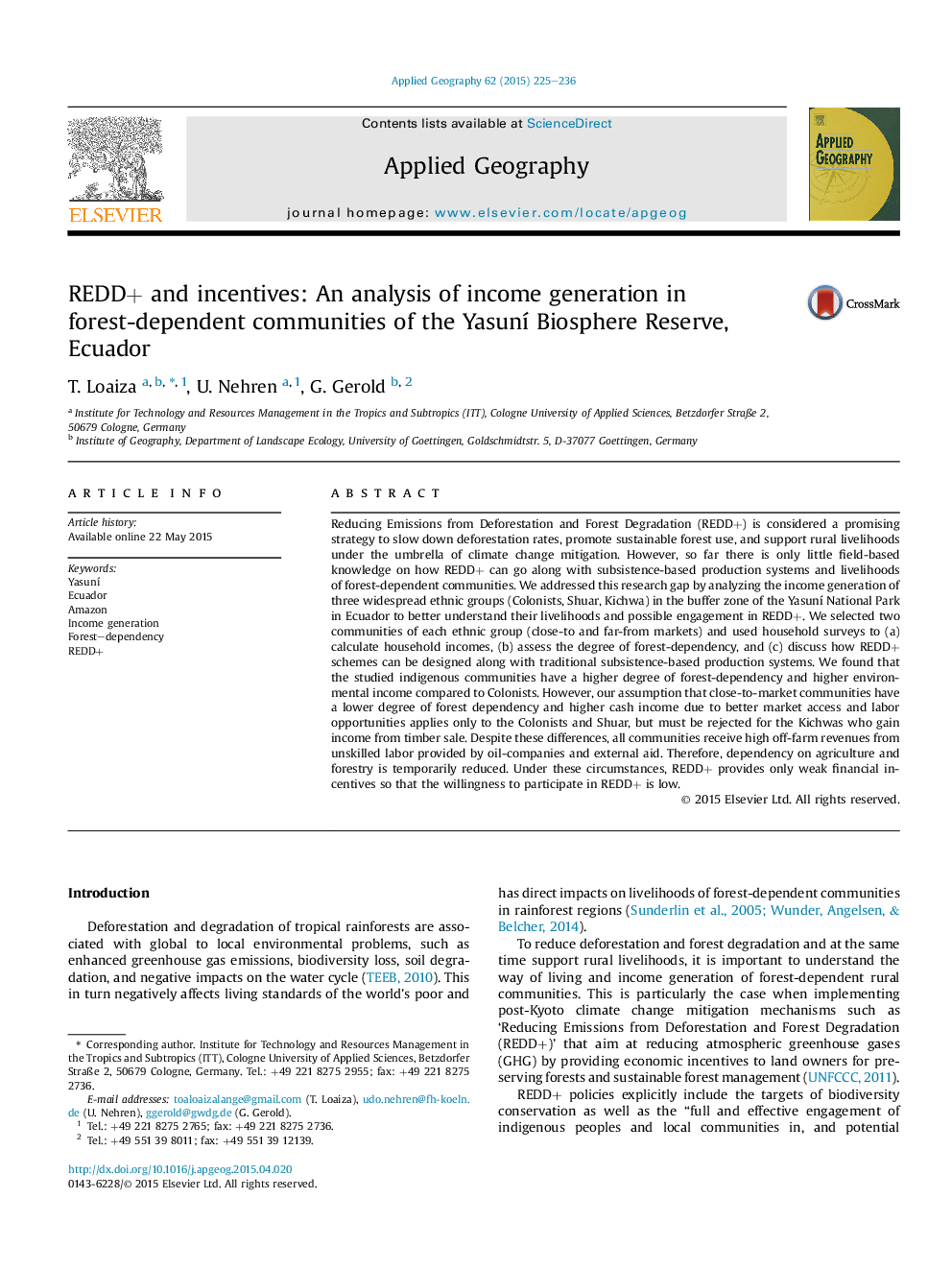| کد مقاله | کد نشریه | سال انتشار | مقاله انگلیسی | نسخه تمام متن |
|---|---|---|---|---|
| 6538510 | 158698 | 2015 | 12 صفحه PDF | دانلود رایگان |
عنوان انگلیسی مقاله ISI
REDD+ and incentives: An analysis of income generation in forest-dependent communities of the Yasunà Biosphere Reserve, Ecuador
دانلود مقاله + سفارش ترجمه
دانلود مقاله ISI انگلیسی
رایگان برای ایرانیان
موضوعات مرتبط
علوم زیستی و بیوفناوری
علوم کشاورزی و بیولوژیک
جنگلداری
پیش نمایش صفحه اول مقاله

چکیده انگلیسی
Reducing Emissions from Deforestation and Forest Degradation (REDD+) is considered a promising strategy to slow down deforestation rates, promote sustainable forest use, and support rural livelihoods under the umbrella of climate change mitigation. However, so far there is only little field-based knowledge on how REDD+ can go along with subsistence-based production systems and livelihoods of forest-dependent communities. We addressed this research gap by analyzing the income generation of three widespread ethnic groups (Colonists, Shuar, Kichwa) in the buffer zone of the Yasunà National Park in Ecuador to better understand their livelihoods and possible engagement in REDD+. We selected two communities of each ethnic group (close-to and far-from markets) and used household surveys to (a) calculate household incomes, (b) assess the degree of forest-dependency, and (c) discuss how REDD+ schemes can be designed along with traditional subsistence-based production systems. We found that the studied indigenous communities have a higher degree of forest-dependency and higher environmental income compared to Colonists. However, our assumption that close-to-market communities have a lower degree of forest dependency and higher cash income due to better market access and labor opportunities applies only to the Colonists and Shuar, but must be rejected for the Kichwas who gain income from timber sale. Despite these differences, all communities receive high off-farm revenues from unskilled labor provided by oil-companies and external aid. Therefore, dependency on agriculture and forestry is temporarily reduced. Under these circumstances, REDD+ provides only weak financial incentives so that the willingness to participate in REDD+ is low.
ناشر
Database: Elsevier - ScienceDirect (ساینس دایرکت)
Journal: Applied Geography - Volume 62, August 2015, Pages 225-236
Journal: Applied Geography - Volume 62, August 2015, Pages 225-236
نویسندگان
T. Loaiza, U. Nehren, G. Gerold,